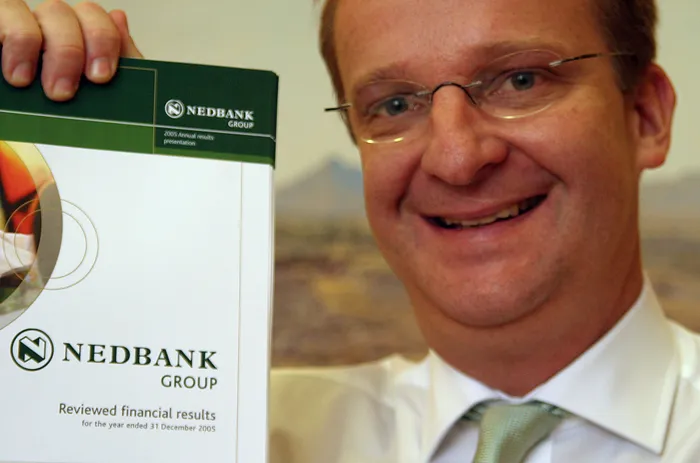Transnet settlement casts shadow over former Nedbank CEO Mike Brown’s legacy

Former Nedbank CEO Mike Brown.
Image: File
Former Nedbank chief executive Mike Brown’s legacy came under scrutiny this week after the bank agreed to pay Transnet R600 million to settle a long-running dispute over controversial interest-rate swap deals concluded during his tenure.
While the confidential settlement ends a costly legal battle, it is likely to deepen reputational concerns surrounding Brown, who presided over the bank at a time when it became entangled in transactions later linked to South Africa’s state-capture scandal.
Brown, who over 14 years earned remuneration totalling nearly R477 million, was previously lauded for modernising the bank and maintaining stability in a volatile environment. But the Transnet case has long cast a shadow over his tenure, with the swap episode as a notable blemish on his record.
Nedbank and Transnet announced the settlement on Tuesday, describing it as being “in the national interest”. The agreement brings an end to litigation launched in 2024 by Transnet and the Special Investigating Unit (SIU), which sought to recover approximately R2.7 billion related to swap transactions arranged in December 2015 and March 2016.
Nedbank said," The settlement is made without admission ofliability and in the interests of avoiding lengthy and costly litigation and damage to their ongoingrelationship.Transnet and Nedbank stand by their respective previous statements in respect of their litigation.Transnet and Nedbank have a long-standing relationship, and the settlement of this litigationallows them to continue to develop this important relationship in the national interest and for thefurtherance of the infrastructure investment and economic growth."
Though Nedbank stressed the payment was made without any admission of liability, the settlement immediately revived discussion about the bank’s governance standards under Brown, who stepped down in May 2024 after 14 years at the helm. During that period, central to the country’s state-capture revelations, Nedbank’s role in the Transnet swaps raised questions about how effectively it safeguarded itself from reputational and operational risks associated with politically exposed clients.
The swaps were part of a broader financing framework to support Transnet’s locomotive procurement programme. Transnet had taken on variable-rate debt, which it hedged through interest-rate swaps facilitated by Nedbank. Advisory work was provided by a firm linked to the Gupta network, whose influence was at the centre of state-capture allegations. Subsequent investigations argued that these structures were tainted by improper conduct, lacked adequate procurement oversight, and potentially enabled the diversion of public funds.
Transnet’s executive manager for governance, Peter Volmink, testified in May 2019 that the capture of Transnet happened through a process that was designed to override controls such as deviating from open bidding processes.
In a statement, Transnet and the SIU said the interest rate swop transactions featured under the report of the Judicial Commission of Inquiry into Allegations of State Capture, Corruption and Fraud in the Public Sector formed part of a greater scheme to misappropriate and divert public funds from Transnet to Gupta-linked entities.
Transnet and the SIU claimed the transactions were invalid and that Nedbank was unjustly enriched through the arrangement. Mediation efforts failed in 2024, prompting the state entities to proceed with litigation. For its part, Nedbank maintained throughout that it had followed standard legal and governance processes, noting the bank earned less than R43 million in margins on the swaps — far below the amount sought by Transnet.
Brown’s legacy may further be tested as parallel matters involving interest-rate swap arrangements, including those raised by Airports Company South Africa (Acsa), proceed through investigative channels.
Although Nedbank has consistently defended its conduct and emphasised its cooperation with authorities, the accumulation of disputes linked to the state-capture era poses ongoing reputational challenges for the institution he once led.
BUSINESS REPORT